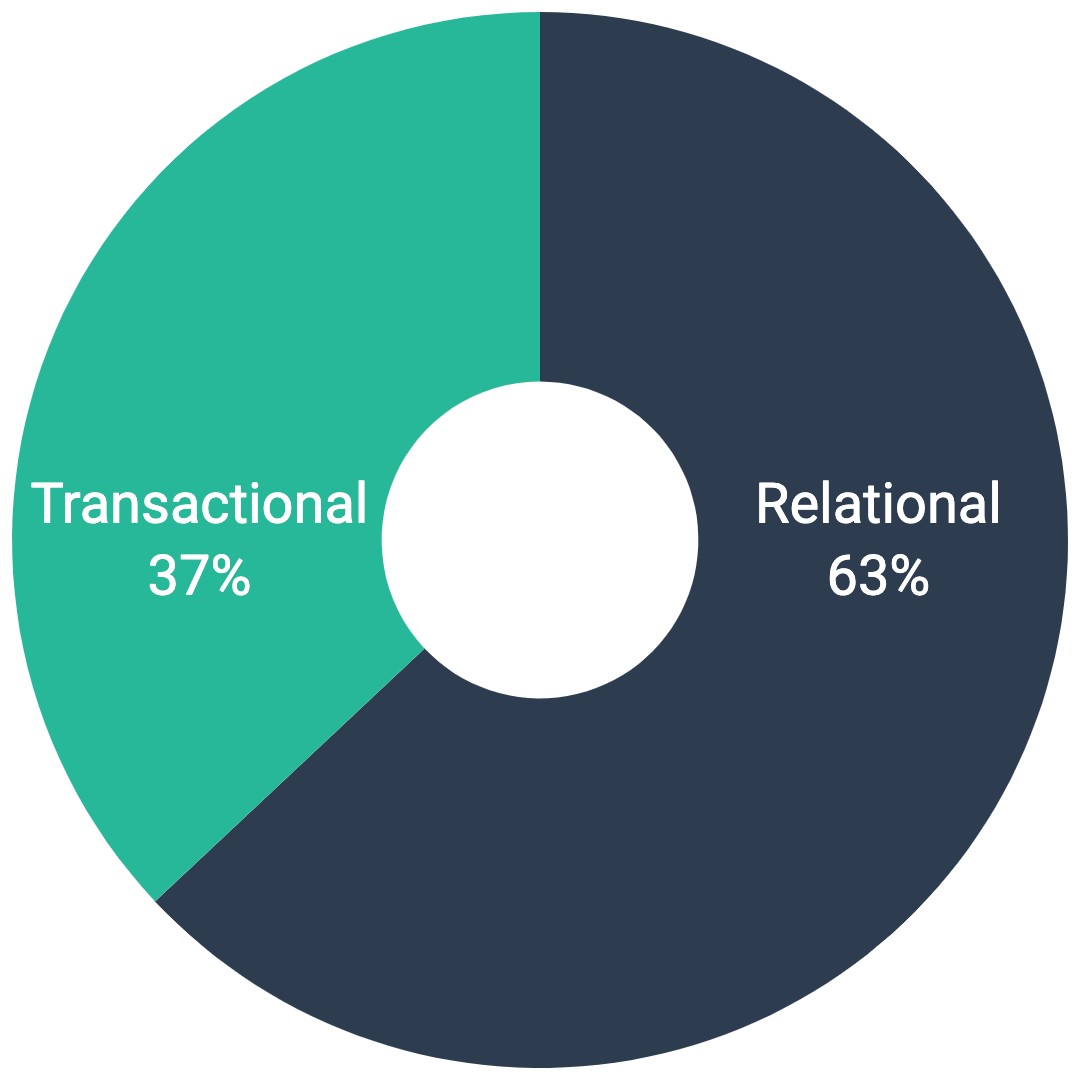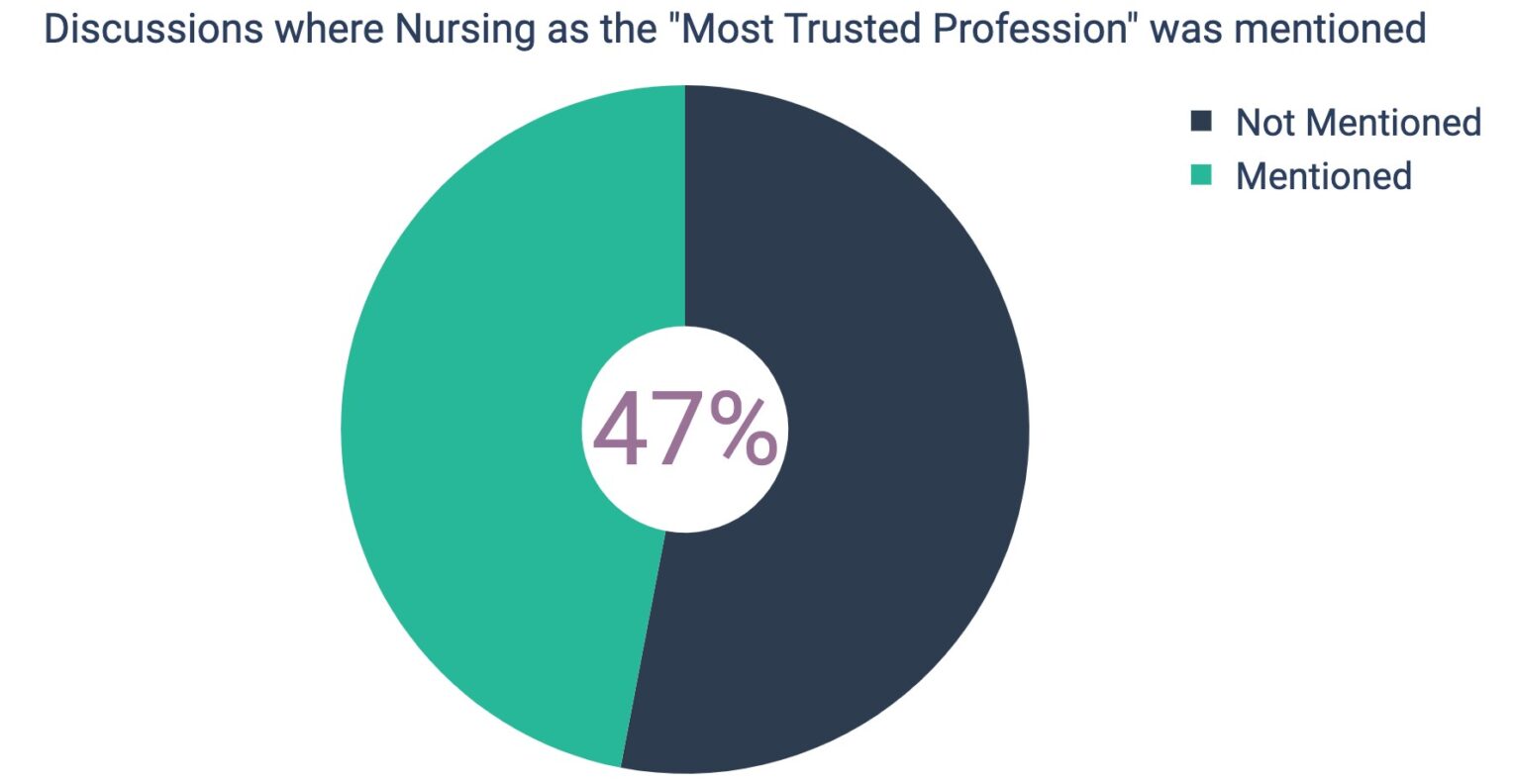R³ – Relationships Matter REport
We asked Maryland nurses to engage each other about the state of their profession. What emerged is that workforce challenges are now more relational than transactional.
Through a collaboration between R3: Resilient Nurses Initiative of Maryland and Slow Talk, a platform for facilitated conversation and analysis, we engaged nurses from 20 health systems or nursing schools across Maryland about the big narratives in their profession – from what nurses are saying in the break room to portrayals in the media.
The project was conducted with a view to gain a greater understanding of the current narratives including: How do nurses view themselves and their profession? How do others view the profession? What’s missing in the public narrative? What is the narrative to be crafted together going forward? With the field at a crisis point, the importance of understanding narratives is crucial to then rebuild a more constructive narrative to take the field forward. By engaging various segments of the community including students, faculty, practitioners, educators and leaders, in authentic conversations we aimed to surface a full array of viewpoints that were equitably voiced and heard. A combination of qualitative insights and quantitative analysis, generated a multi-dimensional data set.
The full report provides a wealth of additional information on the findings and how they were developed.
For Nurse Leaders
Dr. Rushton and Slow Talk are inviting you to have a free & confidential discussion with your peers on the Slow Talk platform about the perspectives raised in this report. The results of those discussions will be compiled and shared in a similar fashion.
Keeping nurses thriving in the profession is now in large part a relational problem
The most significant theme to emerge was a call to attend more effectively to nurses’ human relational needs in order to address the retention crisis and improve patient care. This finding is supported by analysis conducted on the conversations and reinforced by existing research on the importance of being heard, supported and aligned with organizational values for job satisfaction, retention and performance.
Transactional
Participant claims that reference systemic interactions like compensation, hours, staffing ratios, and investment in professional development.
Relational
Participant claims that make reference to Interpersonal dynamics, such as how one is perceived by or interacts with other people.

Compensation and staffing ratios are preeminent structural issues that acutely and chronically contribute to the current crises in nursing. Attending to these remains urgent and fundamental. These transactional interactions have been clearly highlighted as having an impact on nurses’ well-being and desire to remain in the profession.
What was unexpected however was how pervasively participants reflected on deficiencies at the interpersonal level across specific dimensions:
There were four key relationships
that emerged as most salient:
LEADERS
Genuine connection grounded in shared values.
Peers
Social support based on common experience.
Patients
Acknowledgment of nurses’ basic human needs.
Oneself
The purpose that motivates and defines them.
All speakers gave consent for their voices to be used. In some instances, those voices have beenmasked using AI to protect their anonymity while preserving the tonality and emotion.
Generation gap: top of mind amongst nurses
Intergenerational stressors loomed large amongst the participants. The impact of generational differences on their work lives was mentioned more than insufficient compensation and lack of resources. To be clear there was respect and appreciation expressed, as well as an understanding of how valuable these intergenerational relationships could be.
Generational themes that were discussed:
- A feeling that seniority brings no additional benefits, only additional burden
- A desire for greater mentorship
- Concerned by experienced nurses that their own burnout may lead to younger nurses either choosing not to enter or leaving the profession
- There are widely varying opinions about whether social media is a positive or negative force in the profession

There is a deep well of pride amongst (and broad trust in) nurses, and collectively they have the potential to be powerful drivers of change.
Despite the expressions of frustration about the changing face of healthcare, the challenges of the profession and concerns about the future, what emerged from our research is that there remains a deep well of pride amongst (and broad trust in) nurses, and collectively they have the potential to be powerful drivers of change. There was a widespread expression of their work being more than a job, their passion and desire to remain in the profession for the sake of patients and an understanding that they are qualified and capable professionals with the capacity to contribute to change.

Simple recommendations for healthcare leaders
- Bring a relational lens to these dynamics in your system: what are the key significant relationships? How might they be nurtured? When there is a gap between what people need and what they receive, trust is broken. Taking a relational approach is a way to build and rebuild that trust.
- Actively listen and listen early: don’t wait until the dam breaks; seek to both hear and understand the why behind what people are asking for. As well, ensure you are communicating the why or the rationale behind your decisions. Use tools that can help you tap into the conversation in time to take early action.
- Don’t be an invisible leader: Be present. Ensure that you show up, own your decisions, explain why plans change.
For nurse leaders, we’re offering a unique opportunity to join a live conversation about these findings and related dynamics, ultimately providing a safe space to build a deeper understanding of multiple perspectives.
There is a wealth of further analysis on all of the above topics in the accompanying report which can be downloaded here .
For press inquiries, please contact: [email protected]
About R³
R³: The Resilient Nurses Initiative of Maryland, is a statewide trans-institutional academic/practice collaboration to improve well-being and resiliency, strengthen the bridge from education to practice, and increase retention among nursing students, faculty and practicing nurses. R³ resources integrate resiliency, well-being, and ethical practice tools and skills into prelicensure education and nurse residency programs. Collaboratively with national and state stakeholders, universities, nurse residency programs and hospitals in Maryland, R3 has fostered statewide communities of practice to share best practices and to sustain their dissemination and optimization.
This is an inclusive, collaborative learning lab where some of the most ground-breaking, innovative and impactful models of resilience will be shared.
About Slow Talk
Slow Talk is a public benefit corporation dedicated to cultivating a shared sense of belonging and amplifying critical voices focused specifically on the nursing crisis in Healthcare.

How to Cite the Report
R3: Resilient Nurses Initiative of Maryland (2024) Relationships Matter: Beyond a transactional approach to the nursing workforce crisis. https://nursing.jhu.edu/faculty-research/research/centers/r3/r3-nurse-report/